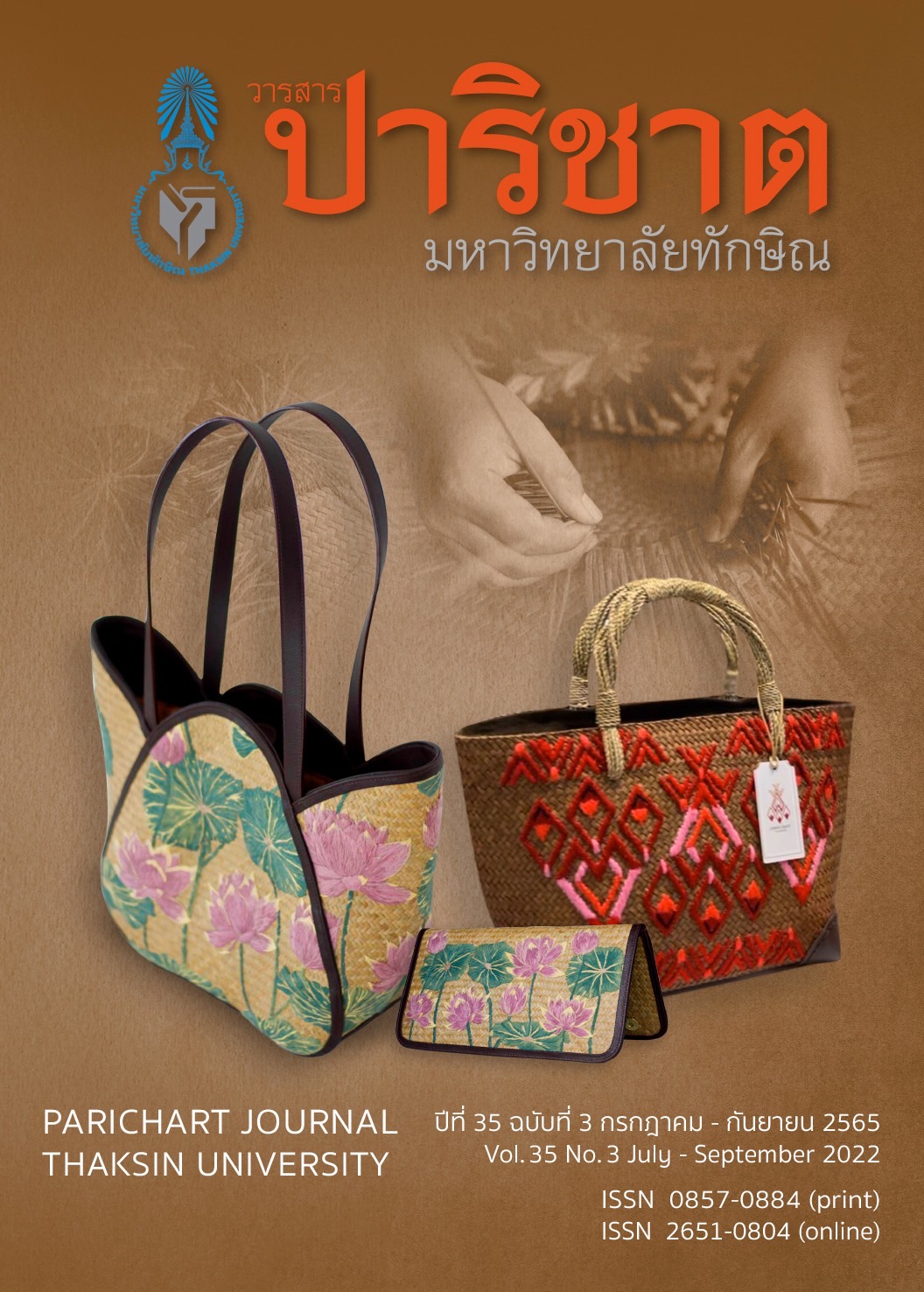รูปแบบการบริหารจัดการกระบวนการบำบัดรักษาและฟื้นฟูสมรรถภาพผู้เสพ/ผู้ติดยาเสพติดในพื้นที่เขตพัฒนาพิเศษภาคตะวันออก
Main Article Content
บทคัดย่อ
บทความวิจัยนี้มีวัตถุประสงค์ 1) ศึกษากระบวนการบำบัดรักษาและฟื้นฟูที่ส่งผลต่อการเลิกเสพยาเสพติด 2) สังเคราะห์กระบวนการและกิจกรรมการบำบัดรักษาและฟื้นฟูผู้เสพติดยาเสพติด และ 3) เสนอแนะรูปแบบการบริหารจัดการป้องกันการกลับมาเสพติดยาเสพติดของผู้ที่เข้าร่วมโครงการบำบัดและแก้ไขอุปสรรคต่อการกลับเข้าสู่สังคม โดยประชากรและกลุ่มตัวอย่าง คือ กลุ่มผู้เข้าโครงการบำบัดรักษาฯ ปีงบประมาณ พ.ศ. 2560-2562 ที่สามารถเลิกเสพได้และที่กลับมาเสพซ้ำ กลุ่มเจ้าหน้าที่ฝ่ายความมั่นคงจากศูนย์อำนวยการป้องกันและปราบปรามยาเสพติด และผู้ขับเคลื่อนนโยบาย “ผู้เสพ คือ ผู้ป่วย” ในพื้นที่ 3 จังหวัด EEC วิธีการดำเนินการวิจัยเป็นการวิจัยผสมผสาน การวิจัยเชิงคุณภาพและการวิจัยเชิงปริมาณ วิเคราะห์ผลด้วยสถิติเชิงพรรณนา และสถิติเชิงอนุมาน เน้นประเด็นตามวัตถุประสงค์ของการวิจัย ผลการวิจัยพบว่า 1) การนำตัวผู้เสพมีข้อจำกัดทางเพศ สถานที่ และปัจจัยภายนอกที่ส่งผลต่อการเลิกหรือกลับมาเสพยาเสพติด 2) กระบวนการเข้ารับการบำบัดมีแนวปฏิบัติไม่หลากหลายก่อเกิดการเรียนรู้หลีกเลี่ยงโทษหนัก ขยายเครือข่ายยาเสพติด การขาดการบูรณาการระหว่างหน่วยงาน 3) การสำรวจและจัดสรรตามความต้องการในการรับความช่วยเหลือ การคัดกรองที่หลากหลาย เพิ่มเจ้าหน้าที่และจัดอบรมอย่างต่อเนื่อง จัดสถานที่เฉพาะหรือสถานบำบัดที่เปิดรับผู้ป่วยได้ตลอดไม่ต้องรองบประมาณ
Article Details

อนุญาตภายใต้เงื่อนไข Creative Commons Attribution-NonCommercial-NoDerivatives 4.0 International License.
เอกสารอ้างอิง
Office of the Narcotics Control Commission. (2015). Nationwide drug crackdown results. Office of the Narcotics Control Commission.
Office of Strategy. (2015). Strategic plan for prevention and solution to narcotic problems 2015-2016. Office of the Commission for Prevention and Suppression of Narcotics.
Office of the Council of State. (2014). Drug Addiction Rehabilitation Act, B.E. 2545. Office of the Council of State.
National Drug Prevention and Suppression Center. (2015). Handbook of Kwan Land Center for lecturers in Voluntary Behavioral Modification Camp. NACC Office.
Office of Narcotics Prevention and Suppression, Region 2. (2018). Overall statistical statistical situation of the Eastern region. Before and after the entry of the NCPO government, Chonburi: Office of Narcotics Prevention and Suppression Region 2.
National Drug Prevention and Suppression Center. (2015). Drug prevention and solution action plan 2016. Office of the Prime Minister.
Office of the Anti-Petid Drugs Committee, Ministry of Justice. (2017). Drug prevention and solution action plan 2017. Office of the Anti-Drug Commission.
National Drug Prevention and Suppression Center. (2015). Handbook of Kwan Land Center for Lecturers in Voluntary Behavioral Modification Camp. NACC Office.
Coordinating follow-up to assist those who have undergone therapy. (2018). Guidelines for follow-up to help those who have undergone rehabilitation therapy. Drug Prevention and Solution Development Office, NACC Office.
Narcotics Treatment Coordination Division, Office of the NACC, National Narcotics Control Center. (July 21, 2014). Procedures for screening assessment and referral for rehabilitation therapy. In the operation manual for solving drug addict problems according to the National Council for Peace and Order Announcement No. 108/2557 (page 5). Thanapress Company Limited.
Wanichbancha, School of Medicine (2016). Advanced statistical analysis with SPSS. In Assoc. Wanich Bancha, Advanced statistical analysis with SPSS. Samlada Ltd., Part.
Chatu-hong, S., & Tan-sri-sa-kul, S. (2018). Factors affecting relapse drug users with competency rehabilitation in treatment compulsory system as a case study of Office of Probation, Roi-ed Province. Journal of Chopayom, 29(1), 199-209.
Che-masae, S., & Mhadmarn, H. (2016). The opinion of community leaders on drug problem solution of government in Mueang district area Narathiwat province. Journal of AL-NUR Graduate School, Fatoni University, 11(20), 99-114.
Suwannanon, A. (2015). The Study of the model on drug abuse treatment. Journal of the Graduate school of Suan Dusit, Suan Dusit Rajabhat University, 11(2), 213-222.
Thatsananchalee, P. (2011). The process of non-becoming amphetamine addict: A case study of rehabilitated person in process of correctional system. Journal of Chonburi Sahasat Sripatum, 1(3), 36-48.


